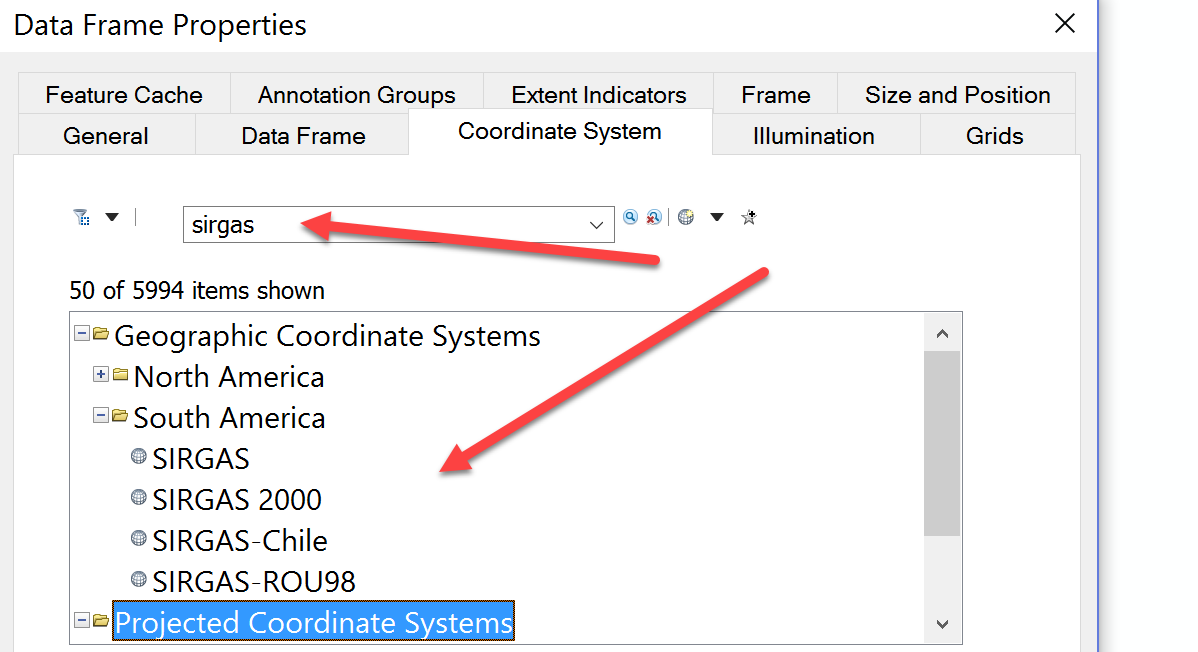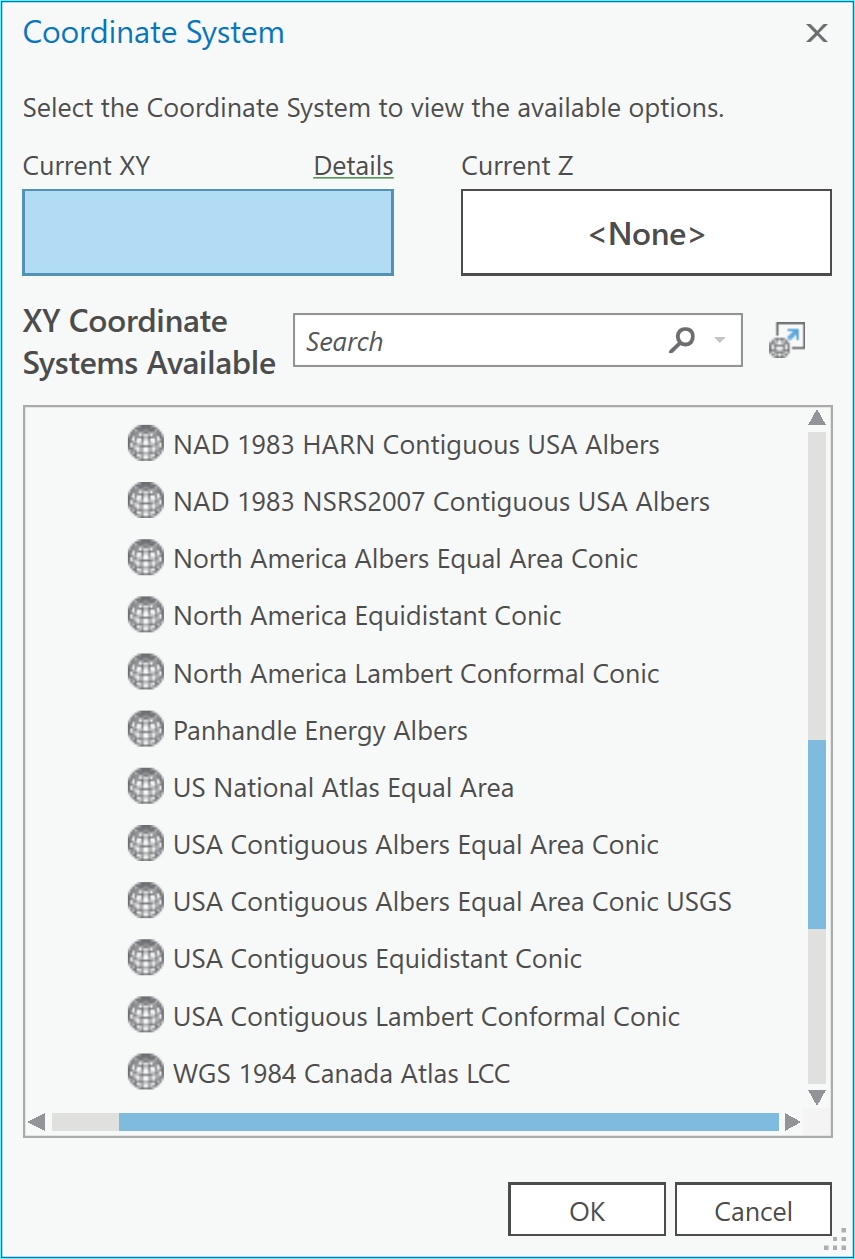- Home
- :
- All Communities
- :
- Developers
- :
- Developers - General
- :
- Developers Questions
- :
- Re: Shapefile Projection
- Subscribe to RSS Feed
- Mark Topic as New
- Mark Topic as Read
- Float this Topic for Current User
- Bookmark
- Subscribe
- Mute
- Printer Friendly Page
Shapefile Projection
- Mark as New
- Bookmark
- Subscribe
- Mute
- Subscribe to RSS Feed
- Permalink
Hello.
I have 100 US. metro cities in shapefiles and would like to project them. I would like to know the most suitable projection type for them. Currently they are in Geographic Coordinate System: GCS_North_American_1983
Datum: D_North_American_1983.
Thanks a a lot
- Mark as New
- Bookmark
- Subscribe
- Mute
- Subscribe to RSS Feed
- Permalink
Currently on PRO, but it is the same for ArcMap.
What is the best, depends on your spatial area coverage. You can begin your journey in many ways, but I find the interface from ArcToolbox the easiest to remember


do some reading, start with what is used in your area, or by the federal gov't etc. There are lots of choices lambert's and Albers variants tend to be recommended depending whether your E/W extent is wider than your N/S.
Others will weigh in with opinions, the above guides you to the 'where are'
- Mark as New
- Bookmark
- Subscribe
- Mute
- Subscribe to RSS Feed
- Permalink
Dan,
Let me check them, and let you know which one works
Thanks a lot
- Mark as New
- Bookmark
- Subscribe
- Mute
- Subscribe to RSS Feed
- Permalink
remember, that the continental scale ones are best for a well spread out set of data... if all your points are on one coast or the other, then you might begin to examine those at a more regional level or even State-based. Good luck... but do check what is used by the various levels of government. Here in Canada, they are pretty specific as to what they use on a country and province wide basis
- Mark as New
- Bookmark
- Subscribe
- Mute
- Subscribe to RSS Feed
- Permalink
They are in polygons, and I selected two metro cities from each state. So they represent the 50 US states. Currently I'm reading an article talking about UTM is the best one.
- Mark as New
- Bookmark
- Subscribe
- Mute
- Subscribe to RSS Feed
- Permalink
UTM would NOT be a good choice is you are showing across the 50 states.
- Mark as New
- Bookmark
- Subscribe
- Mute
- Subscribe to RSS Feed
- Permalink
Some of metro cities are across states like chicago, kansas and St Louis. I want to project each city separately
- Mark as New
- Bookmark
- Subscribe
- Mute
- Subscribe to RSS Feed
- Permalink
I want to project each city separately
then it might be ok. you would just have to figure out the best UTM zone for each. Like any projection, you will get distortion in one form or another.
- Mark as New
- Bookmark
- Subscribe
- Mute
- Subscribe to RSS Feed
- Permalink
Can you give more explanation on UTM, I never use it before and don't how to
- Mark as New
- Bookmark
- Subscribe
- Mute
- Subscribe to RSS Feed
- Permalink
I think the help would explain better than I ever could
What are projected coordinate systems?—Help | ArcGIS Desktop
But in short, there are 60 UTM zones, each representing 6° (i.e. 60 x 6 = 360°). so it is typically used for projects with smaller footprints.